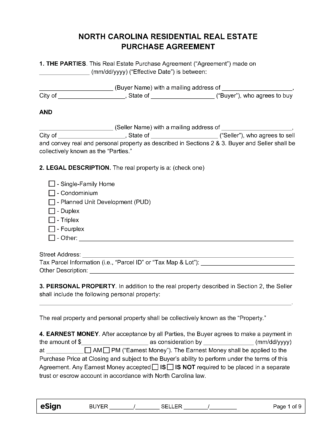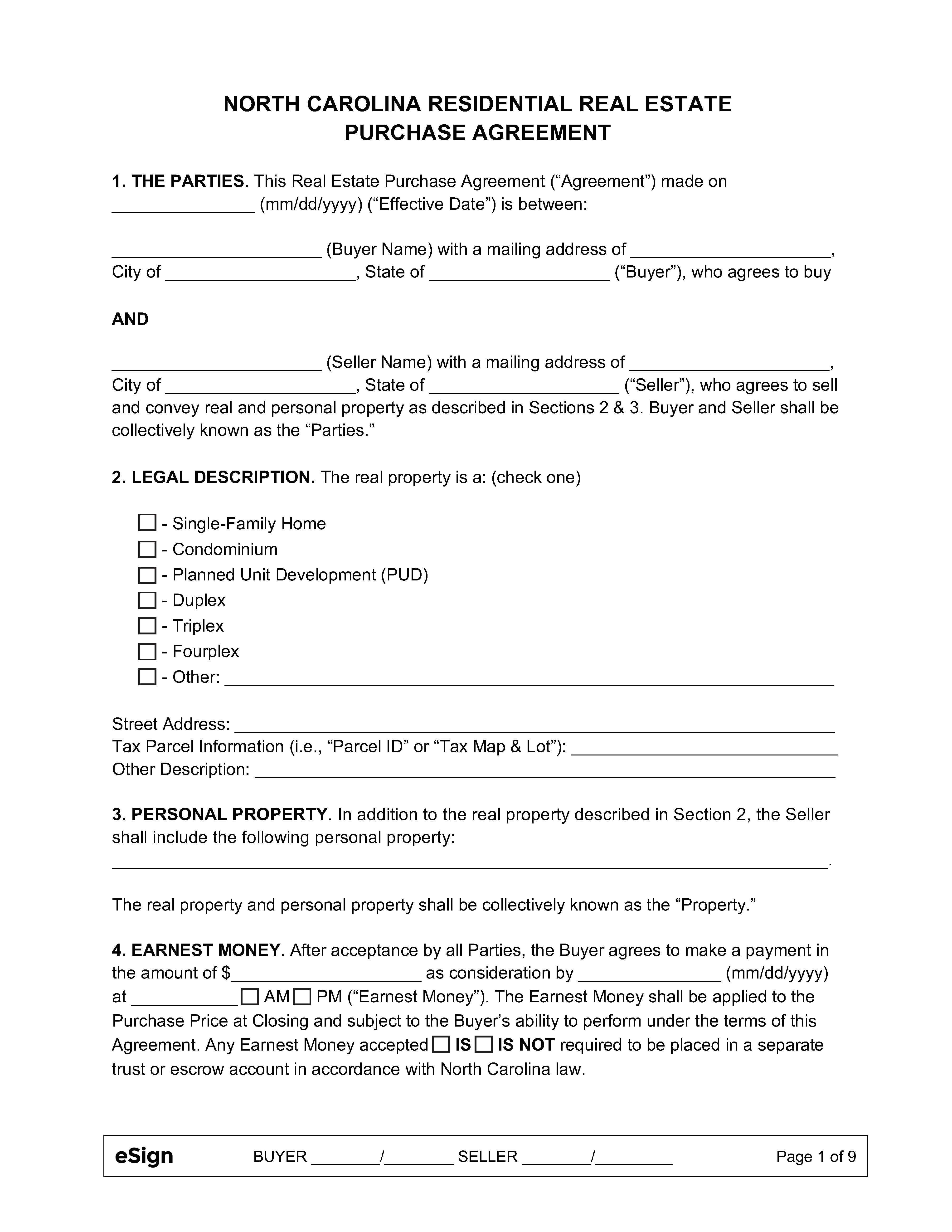Contents |
Realtor Version
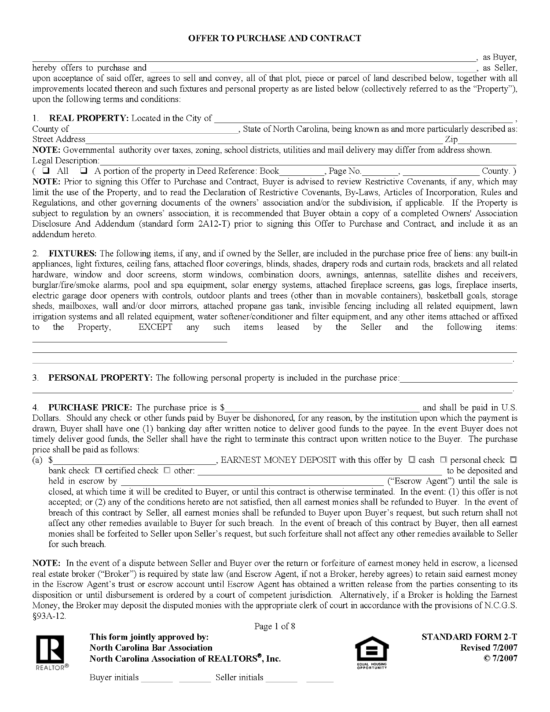
Download: PDF
Required Disclosures (3) |
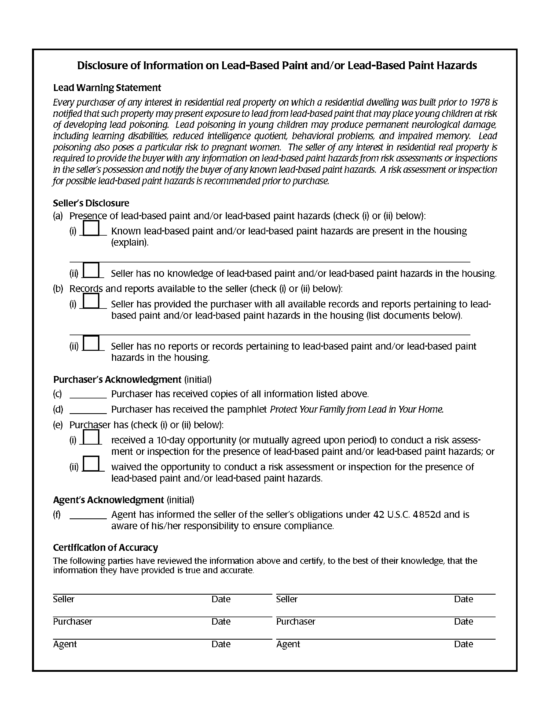 Lead-Based Paint – If the property was constructed prior to 1978, then this disclosure must be provided to homeowners revealing the existence or absence of lead-based paint on the premises. Lead-Based Paint – If the property was constructed prior to 1978, then this disclosure must be provided to homeowners revealing the existence or absence of lead-based paint on the premises.
Download: PDF |
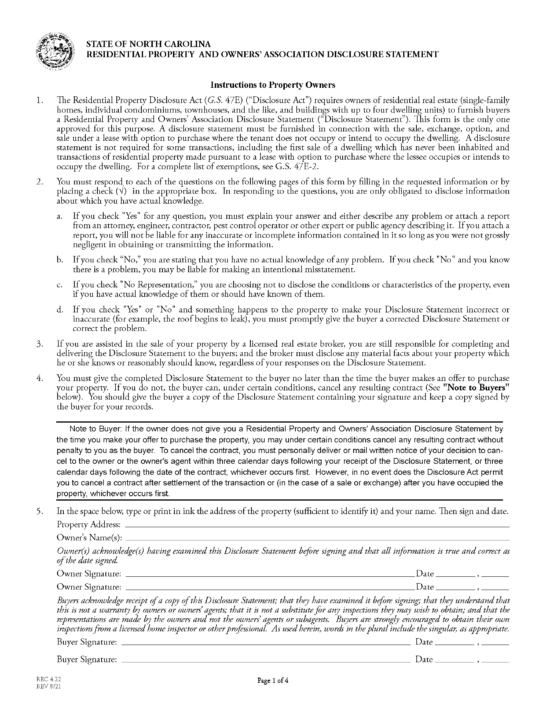 Property Disclosure Statement (G.S. 47E-4(b)) – Unless exempt under § 47E-2, a disclosure statement must be provided to the buyer detailing information about the property such as its age, utility information, the presence of wood-destroying insects, radon gas, and any known defects. Property Disclosure Statement (G.S. 47E-4(b)) – Unless exempt under § 47E-2, a disclosure statement must be provided to the buyer detailing information about the property such as its age, utility information, the presence of wood-destroying insects, radon gas, and any known defects.
Download: PDF |
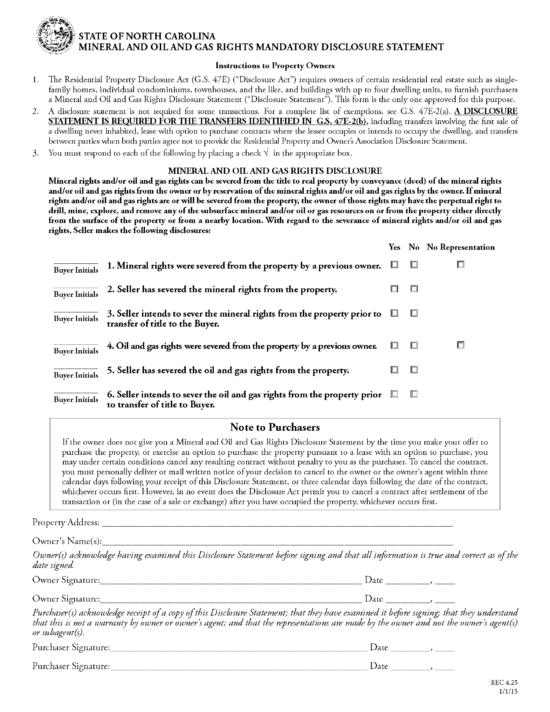 Mineral, Oil, and Gas Rights (§ 47E-4.1) – Any purchaser of a property must be furnished with this document describing the mineral and oil and gas rights on the property. This applies to single-family homes, townhouses, and buildings with up to four (4) units. A unit is exempt if a lessee purchases the property through a rent-to-own lease. Mineral, Oil, and Gas Rights (§ 47E-4.1) – Any purchaser of a property must be furnished with this document describing the mineral and oil and gas rights on the property. This applies to single-family homes, townhouses, and buildings with up to four (4) units. A unit is exempt if a lessee purchases the property through a rent-to-own lease.
Download: PDF |
